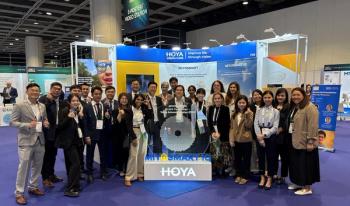
Kala Pharmaceuticals receives FDA Fast Track Designation for KPI-012 for treatment of PCED
According to the company, KPI-012 could become the first approved treatment for persistent corneal epithelial defect across all its various etiologies.
Kala Pharmaceuticals Inc. announced the FDA has granted Fast Track designation for Kala’s human mesenchymal stem cell secretome (MSC-S) therapy (KPI-012) for the treatment of persistent corneal epithelial defect (PCED), a rare and debilitating ocular condition.
Kim Brazzell, PhD, head of research and development and chief medical officer at Kala Pharmaceuticals, pointed out that there is a significant unmet need for patients diagnosed with PCED, which she noted in a news release can result in a number of potential complications and sequelae, including vision impairment, infection, corneal perforation and significant pain and discomfort.
“There are currently no approved pharmaceutical treatments for the majority of PCED patients, and KPI-012’s multifactorial mechanism of action is a potential solution to address all underlying etiologies of PCED,” Brazzell said in the news release. “We look forward to working with the Agency to efficiently advance KPI-012 through the development and review process to fulfill our greater mission of delivering a treatment to the roughly 100,000 patients in the U.S., and thousands more globally, suffering from PCED.”
About KPI-012
Kala noted in its news release persistent corneal epithelial defect, which is defined as a persistent non-healing corneal defect or wound that is refractory to conventional treatments, is a rare disease with an estimated incidence in the United States of 100,000 cases per year and 238,000 cases per year in the United States, European Union, and Japan combined.
Moreover, the company noted PCED can have various etiologies, including neurotrophic keratitis, surgical epithelial debridement, microbial/viral keratitis, corneal transplant, limbal stem cell deficiency, and mechanical and chemical trauma and, if left untreated, can lead to infection, corneal ulceration or perforation, scarring, opacification, and significant vision loss.
Based on a multifactorial mechanism of action and preclinical and clinical data generated to-date, company officials said in the release
KPI-012 could represent a significant advancement in the treatment of PCED and could become the first approved treatment for PCED across all its various etiologies.
The process
According to the company, Fast Track is a process designed by the FDA to facilitate the development and expedite the review of drug candidates intended to treat serious conditions and for which nonclinical and/or clinical data demonstrate the potential to address unmet medical need. The purpose of this designation is to help speed development of new drugs, making them available to the patient more quickly. A company with a therapeutic candidate that receives Fast Track designation may be eligible for more frequent interactions with the FDA to discuss the product development plan. Therapeutic candidates with Fast Track designation may also be eligible for priority review and accelerated approval if supported by clinical data.
In February 2023, Kala dosed the first patient in its Corneal Healing After Secretome therapy (CHASE) Phase 2b trial evaluating KPI-012 for the treatment of PCED. In March 2023, Kala announced positive safety data from the first cohort of two patients that were treated with a high dose of KPI-012 (3 U/mL) four times per day (QID).
According to the company, both patients successfully completed at least one week of dosing with no safety issues observed and the trial has now advanced to Cohort 2. The second cohort is a multicenter, randomized, double-masked, vehicle-controlled, parallel-group study to evaluate the safety and tolerability of two doses of KPI-012 in ophthalmic solution (3 U/mL and 1 U/mL) versus vehicle dosed topically QID for 56 days in approximately 90 patients. The primary endpoint of the trial is the complete healing of the PCED as measured by corneal fluorescein staining. Kala is targeting reporting topline safety and efficacy data in the first quarter of 2024. If the results are positive, and subject to discussion with regulatory authorities, Kala believes this trial could serve as the first of two pivotal trials required to support the submission of a Biologics License Application (BLA) to the FDA.
According to the company, it expects to report top-line safety and efficacy data from the trial during the first quarter of 2024.
Newsletter
Want more insights like this? Subscribe to Optometry Times and get clinical pearls and practice tips delivered straight to your inbox.





























